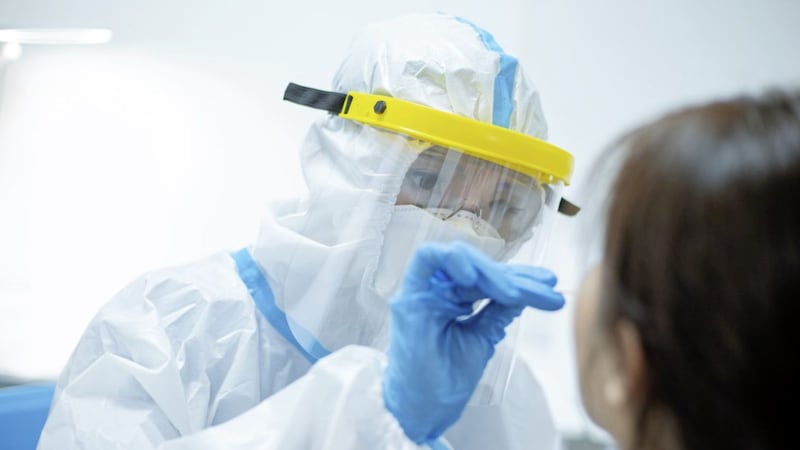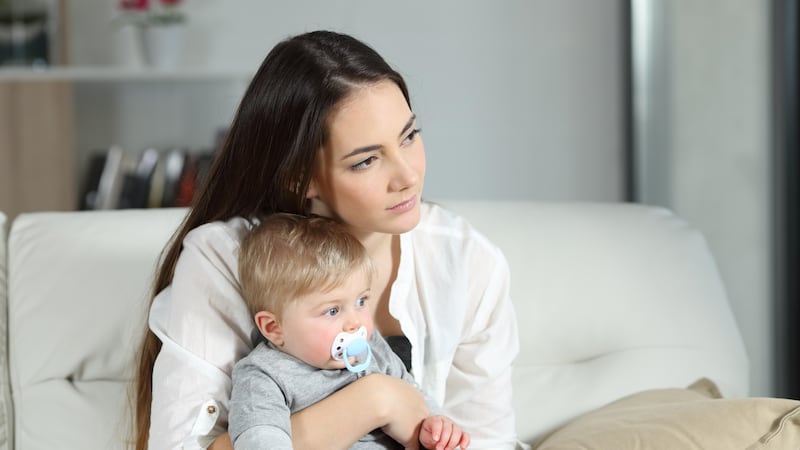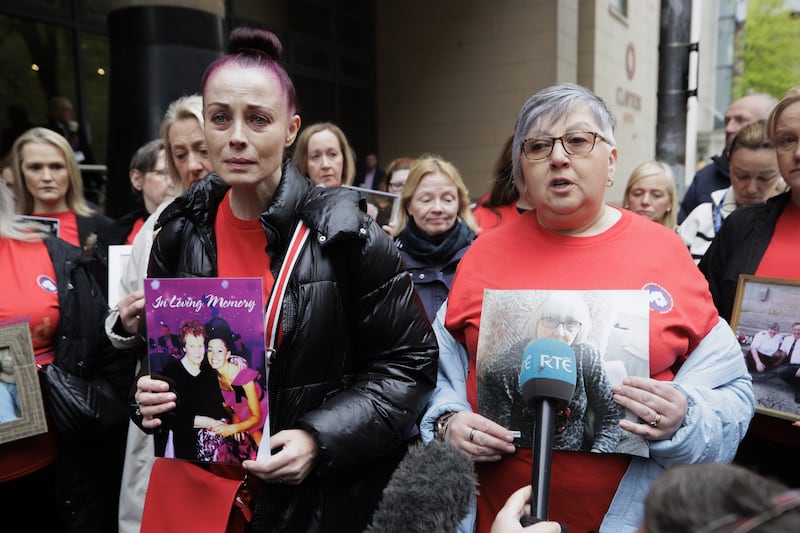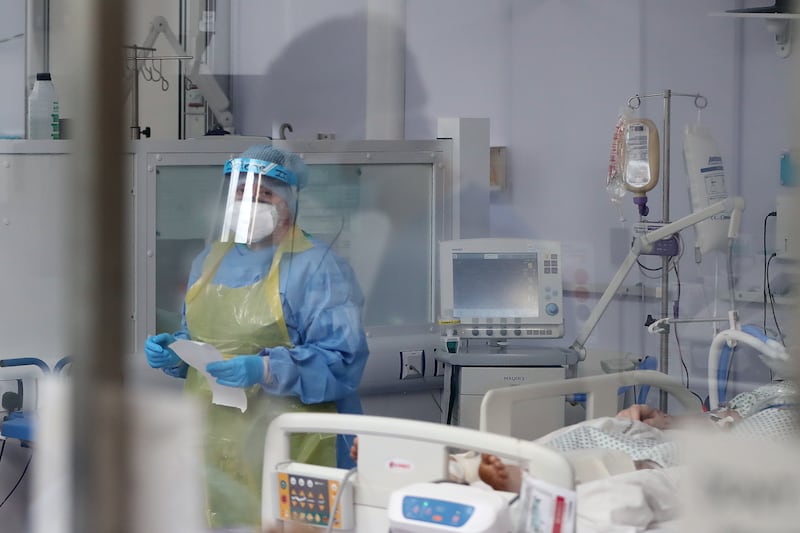WHO will be struck down by Covid-19 and who has already had it are questions that are key to ending the lockdown that began five weeks ago. And central to this is testing.
The British government promised to provide 100,000 tests a day in the UK by the end of this week to check – using a swab test – those currently thought to have the infection. The idea was to focus on 10 million key workers – bus drivers, teachers, waste collectors – and allow them to test themselves at home.
But this scheme has rapidly collapsed under the strain of an overwhelming demand, with home testing kits fully booked within an hour on Monday.
Meanwhile, efforts to find a method of testing for immunity to the virus have also been problematic. An antibody test would give a picture of how many people are susceptible to this potential new killer – and how many have already been infected with it and may have immunity.
Earlier this month, the government spent £16 million on 3.5 million fingerprick antibody tests imported from China, and placed further provisional orders for 17.5 million tests from nine firms, including ones based in the UK.
But after testing all of them, Public Health England – the agency heading the UK's coronavirus response – decided none was accurate enough to use.
Meanwhile, a number of private doctors in Britain have been offering antibody tests at up to £190 each.
With the range of Covid-19 symptoms widening from a dry cough to a loss of sense of taste and smell, plus eye or stomach problems, many people are wondering if they have had it and may well be tempted to fork out for the test for peace of mind.
But some experts are now asking whether immunity tests are actually worth doing at all.
The test to detect active Covid-19 infection involves running a cotton wool swab round the back of the throat and up the nose. The swab is then sent off to a laboratory which runs a test to look for genetic material from Covid-19. What it is looking for is the live virus.
Immunity tests work by looking for two different antibodies the body produces that are unique to Covid-19, and use a drop of blood mixed with a ‘reagent’ that contains a synthetic coronavirus molecule. If the blood contains Covid-19 antibodies, they will lock on to the lookalike virus. The result can be read using a device that works a bit like a pregnancy test.
While claims are made that some of these tests are 98 per cent accurate, Public Health England rejected such figures. (Some of the tests it purchased were apparently only 50-60 per cent accurate.)
Last weekend it was reported that experts at the University of Oxford are helping develop a new antibody test based on blood taken from those only mildly affected as well as those in the early phase of the disease – which, it is suggested, makes this test more than 99 per cent accurate.
The consortium developing the new test believes it is going to be able to produce up to a million of them by this summer.
Professor Karol Sikora, chief medical officer of the chain of private Rutherford Cancer Centres, says his company ordered immunity tests from Korea that had been checked in German laboratories. They were further checked in the UK by a high-quality private laboratory. But Prof Sikora now believes such tests are a waste of time. Out of 108 people tested, they have detected only eight positive samples.
"We know the virus has been in our buildings, so the prevalence simply has to be higher," he says. "It seems many people exposed to the virus don’t develop the antibodies measured by these tests. Young people, in particular, must be seeing off the virus by some other mechanism before it triggers any antibody response."
According to one study, up to 30 per cent of Covid-19 patients do not develop enough antibodies to protect them from reinfection. The findings were made by scientists at Fudan University in China who ran tests on 175 recovered Covid-19 patients. They found older and middle-aged patients had "significantly" higher levels of antibodies than younger ones.
Ten patients had such low levels of antibodies they weren’t detectable at all – even though they had recently recovered from the virus.
Despite such findings, some experts believe antibody tests are better than nothing.
"Most people should produce a positive antibody test 14 to 28 days after infection," says Dr Nick Beeching, a consultant in infectious diseases at Liverpool School of Tropical Medicine. "These tests can stay positive for many years, or immunity can go down quite quickly," he said.
Coronaviruses, which were first identified in the 1960s, are a main cause of minor colds.
However, the immune system rapidly ‘forgets’ what they look like and the same virus can cause reinfection within as little as four months.
"It is around 18 months for SARS and MERS, but in the case of Covid-19 we don’t know how long immunity may last," says Dr Beeching, adding: "Also, there’s a need for better tests."
Our immune system is a complex network of cells and proteins in the blood and lymph system. Theoretically, it keeps a record of every disease-causing agent that has tried to attack your body so it can rapidly recognise and destroy it should it reappear.
It uses large Y-shaped proteins called antibodies or immunoglobulins to detect and bind to disease-causing bacteria and viruses. Once tagged by these immunoglobulins, other parts of the immune system move in to destroy them.
According to Prof Sikora, the low number of positive antibody tests he’s seen suggests that other elements of the immune system – T-cells and natural killer cells – may be the agents which are getting rid of the infection, particularly in younger people.
If this is the case, then the current generation of immunity tests could be largely redundant.
Meanwhile, other evidence suggests many people who catch Covid-19 show no symptoms at all, and the disease may not even be as infectious as feared.
For instance, of the 3,700 people with an average age of 70 on the ill-fated Diamond Princess cruise ship (which was quarantined at sea off Japan for four weeks earlier this year), only 712 tested positive for the Covid-19 infection.
Less than half (331) of those who tested positive had no symptoms; and of the remaining 381 who were taken ill, only 37 needed treatment in intensive care, and nine died.
Differences between the sexes may play a part. Genes are also likely to explain some of this variation. Covid-19 latches onto a protein made by the ACE2 gene, which is a regulator of blood pressure, kidney function and fertility.
It is possible that variants in this gene protect many people from Covid-19 infection, in the same way that gene mutations have been shown to protect some people from HIV infection.
Prof Priya Duggal, a geneticist at Johns Hopkins University in Baltimore, Maryland, has already shown that variants in another gene can explain why some people spontaneously get rid of the liver infection hepatitis C.
Most of the severe Covid-19 cases have been in elderly people, and Prof Duggal is now looking at the genetic profile of younger patients.
"There are cases of people in their 40s and 50s who have been badly affected – and we are looking at the full genome and differences in the gene receptors that are at play," she said.
Meanwhile, Andrea Ganna, a biostatistician at Helsinki University in Finland, is leading a huge international effort to investigate Covid-19 symptoms among individuals who have contributed DNA to gene databases to see if risky genes can be identified.
He said the project would identify genes that influence susceptibility to Covid-19, severity of infection and outcome.
Once Covid-19 susceptible genes are identified, then the goal would be to encourage people to embark on lifestyle changes to protect their health.
For instance, obesity has been identified as a factor in patients who suffer severe Covid-19, so carriers of susceptible genes could be encouraged to lose weight to potentially reduce their risk.
© Solo dmg media








